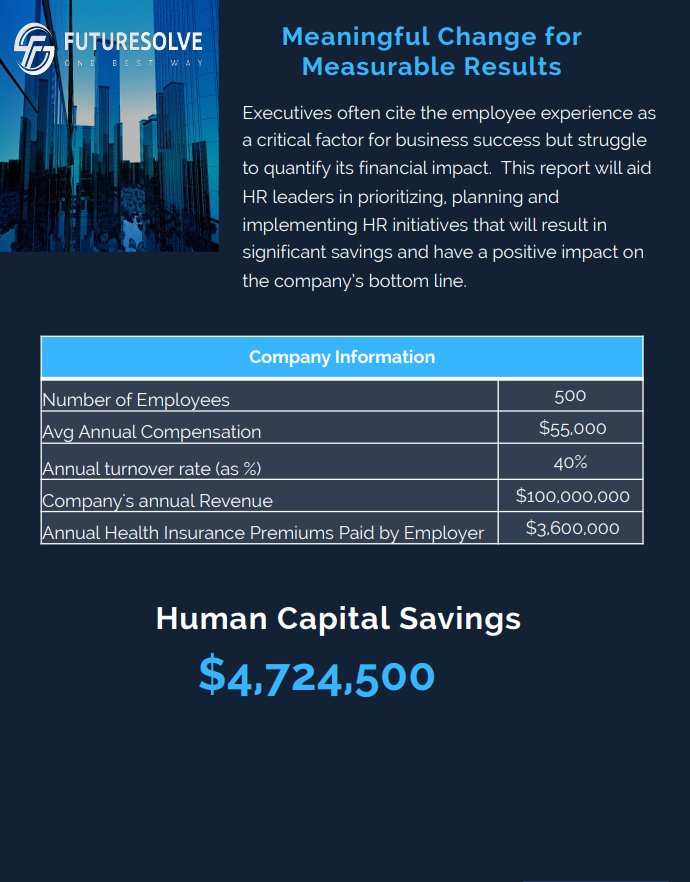Is your organization struggling to handle a wave of new job applications? Or, does your recruitment process appears like a desert? Recruitment can be indeed challenging -even in normal circumstances. It has only worsened since the advent of the global pandemic. Fortunately, AI or Artificial Intelligence comes to the rescue of organizations as it helps in the modern leadership and recruitment processes. Let us know how!
What Makes AI So Important in Business?
AI algorithms are especially helpful for recruiters who are expected to search for recruiters while quickly scanning through multiple applications. It also served to be an effective way when it comes to diversifying the staff by properly eliminating the effects of discrimination and human bias. When organizations make use of AI for recruitment and leadership, they can easily simplify as well as streamline the entire recruitment process such that only best candidates in the given industry are hired.
Recruitment agents and recruiters have been using Artificial Intelligence for several years. For instance, they make use of AI-powered ATS or Applicant Tracking System to scan through multiple CVs while looking for specific phrases or keywords. Therefore, the high-end AI technology presents an innovative way for modern recruiters to scan the applicants quickly and efficiently.
How can AI be Used in Recruitment?
The overall use of AI in recruitment is growing at a rapid pace. As a matter of fact, the revolutionary technology is finding its application into every possible aspect of the recruitment process -right from sourcing to pre-selection, interviewing, to onboarding. Some of the innovative uses of AI in the field of recruitment are:
- Talent Sourcing: One of the most common ways in which AI continues shaping talent acquisition is through sourcing and engaging desirable candidates. A robust AI-based technology solution or platform can be used for automatically reaching out to prospective employees. Data is obtained from proprietary and different public data sources. The candidate-job matches made by AI are used for flagging potential personnel to ensure proper campaigning. It is facilitated by the technology through text or email-based outreach.
- Applicant Screening: Another way Artificial Intelligence shapes the process of talent acquisition is with the use in the field candidate screening or assessment. Technology is being used to score and rate resumes while identifying the candidates that are best-suited for a specific job position. The AI technology looks into a myriad of factors -including skills, education levels, experience, and so more.
Then, the technology compares available data against the specific needs of the organization to recommended the candidates who are most qualified for the specific position. This process helps the recruiter in saving ample time while ensuring that the best candidates are considered for every job.
- Interviews: With AI, recruiters can get access to all necessary statistics to only glance at a single instance. The usual process will include calling the candidates for the specific role, sourcing them, and arranging some pre-selection rounds -including interviews. The main principle of the process is to involve a sense of urgency along with top-class performance and task accomplishment as the KPI.
When the interview process is guided by the Artificial Intelligence technology, it will not only help in saving your time, but it will also be free from human bias. The overall accuracy for data-drive screening will be relevantly higher while leaving little or no room for human-based biasness.
How to Use AI in Leadership?
Organizational leadership continues evolving with rapid technological changes. Leaders now realize that they need to adopt high-end, cutting-edge technology to adapt the changes faster and effectively. Advanced technologies like Artificial Intelligence or AI have helped in changing the core nature of modern leadership within organizations. The use of Machine Learning and AI techniques helps in revealing useful insights for high-end business applications.
The overall competencies for future leaders are going to focus on improved adaptability than preparing for the ongoing change. Leading disruptive technologies continue revolutionizing the world of modern business. Therefore, leaders are expected to embrace these technologies quickly to improve the leadership skills. AI intervention in leadership can help in:
- Analyzing data for rapid decision-making
- Monitoring team productivity and performance
- Improving the service and production processes
Data Analysis for Decision-making
One of the core benefits of using data-driven, automated AI system is the ability to respond to strategic decisions quickly. Both data and AI are working towards finding relevant answers quickly. Moreover, they are also working towards creating ample transparency around complicated issues.
Team Performance Monitoring
Business leaders are nowadays loving AI-driven team performance management. It helps team leaders to focus on relevant factual information to carry out employee-centric performance reviews. There is a greater need for modern employees to collaborate as well as make meaningful decisions.
Using AI, team managers or leaders can seamlessly extract valuable insights from real-time analysis. Real-time analysis is crucial to ensure a regular check on the overall team performance.
Production Process Improvement
When a typical production process will feature a series of complicated steps, an AI system can positively impact the production process by:
- Reducing start-up time -reducing both production time loss and lost material
- Making sure that the end product remains within specifications. It also focuses on proactively controlling system parameters.
- Controlling the overall quality to minimize defects in specific environments with ever-changing conditions.
Conclusion
Increasing the overall intelligence of human beings has served as the core objective of scientists ever since the start of time. The advent and applications of AI are making it possible with each passing day. As businesses continue taking hold of the revolutionary Artificial Intelligence technology and its opportunities, it could lead them to places that were not otherwise imagined before.





























